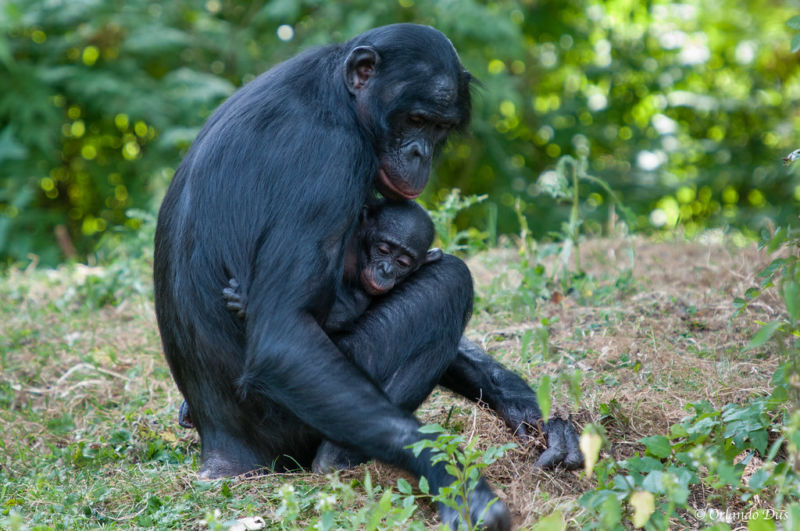Many animals can’t adapt fast enough to climate change

Enlarge / Bonobos carrying the footprint of an ancient, extinct species of ape. (credit: flickr user: Reflexiste)
Climate change has thrown our beautifully balanced planet into chaos. As oceans and forests transform and ecosystems go into shock, perhaps a million species teeter on the edge of extinction. But there may still be hope for these organisms. Some will change their behaviors in response to soaring global temperatures; they might, say, reproduce earlier in the year, when it's cooler. Others may even evolve to cope-perhaps by shrinking, because smaller frames lose heat more quickly.
For the moment, though, scientists have little idea how these adaptations may be playing out. A new paper in Nature Communications, coauthored by more than 60 researchers, aims to bring a measure of clarity. By sifting through 10,000 previous studies, the researchers found that the climatic chaos we've sowed may just be too intense [Editor's note: The researchers scanned 10,000 abstracts, but their analysis is based on data from 58 studies]. Some species seem to be adapting, yes, but they aren't doing so fast enough. That spells, in a word, doom.
To determine how a species is adjusting to a climate gone mad, you typically look at two things: morphology and phenology. Morphology refers to physiological changes, like the aforementioned shrinking effect; phenology has to do with the timing of life events such as breeding and migration. The bulk of the existing research concerns phenology.
Read 11 remaining paragraphs | Comments